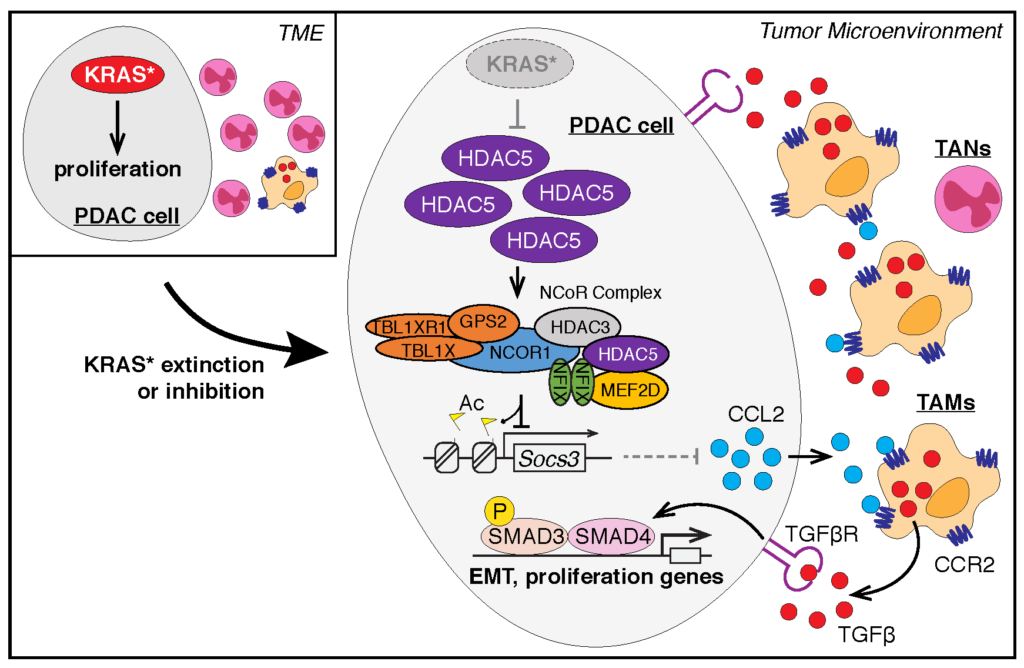Tumor microenvironment remodeling enables bypass of oncogenic KRAS dependency in pancreatic cancer.
Authors:
Pingping Hou, Avnish Kapoor, Qiang Zhang, Jiexi Li, Chang-Jiun Wu, Jun Li, Zhengdao Lan, Ming Tang, Xingdi Ma, Jeffrey J Ackroyd, Raghu Kalluri, Jianhua Zhang, Shan Jiang, Denise J. Spring, Y. Alan Wang and Ronald A. DePinho
Abstract
Oncogenic KRAS (KRAS*) is a key tumor maintenance gene in pancreatic ductal adenocarcinoma (PDAC), motivating pharmacological targeting of KRAS* and its effectors. Here, we explored mechanisms involving the tumor microenvironment (TME) as a potential basis for resistance to targeting KRAS*. Using the inducible KrasG12D p53 null (iKPC) PDAC mouse model, gain-of-function screens of epigenetic regulators identified HDAC5 as the top hit enabling KRAS* independent tumor growth. HDAC5-driven escaper tumors showed a prominent neutrophil-to-macrophage switch relative to KRAS*-driven tumors. Mechanistically, HDAC5 represses Socs3, a negative regulator of chemokine CCL2, resulting in increased CCL2 which recruits CCR2+ macrophages. Correspondingly, enforced Ccl2 promotes macrophage recruitment into the TME and enables tumor recurrence following KRAS* extinction. These tumor-associated macrophages (TAMs) in turn provide cancer cell with trophic support including TGFB to enable KRAS* bypass in a Smad4-dependent manner. Our work uncovers a KRAS* resistance mechanism involving immune cell remodeling of the PDAC TME.
Read Full Article – Cancer Discovery
